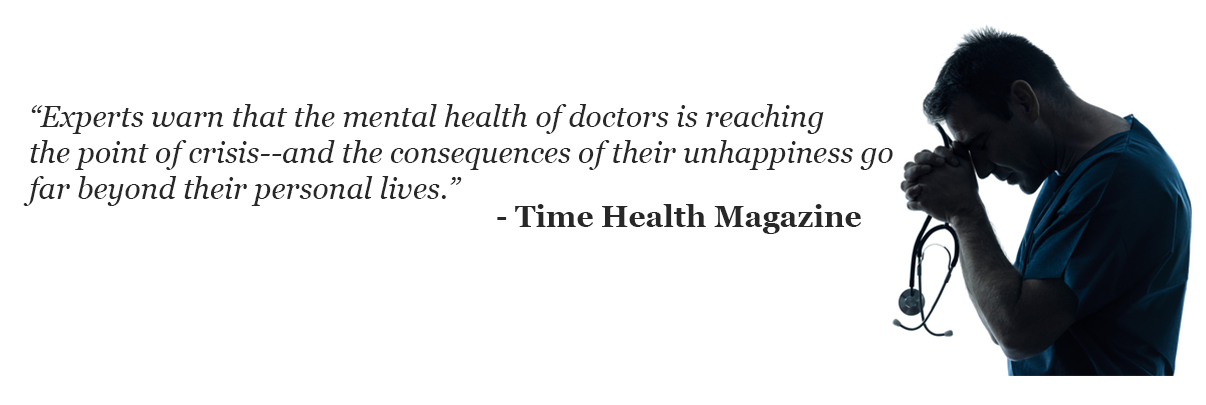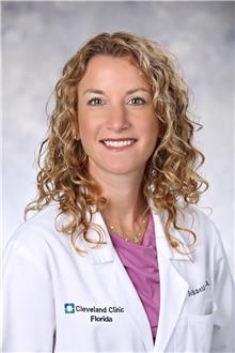Let’s Talk About Physician Burnout

Physician Burnout has become a serious topic of discussion in the healthcare field lately. With such a large array of factors affecting the well-being of physicians, we thought it would be a good idea to meet up with a physician who holds this topic close to heart.
Dr. Alison Schneider is a practicing Gastroenterologist with the Cleveland Clinic in Weston, Florida. After completing her undergrad at Duke University, she then moved to the University of Miami to finish Medical School. From there, she completed her Internship and Residency Program for Internal Medicine at the Thomas Jefferson University Hospital before completing her Fellowship in Gastroenterology at the Drexel University College of Medicine.
A quick evaluation of her Cleveland Clinic profile reveals 159 patient satisfaction reviews with an average score of 4.9 of out 5.0 stars, a true accomplishment! It was a pleasure to have this opportunity to hear from someone who clearly knows the meaning of patient care.
I sat down with Dr. Schneider to find out more about her perspective on physician burnout and what can be done to better manage it, and more optimistically, prevent it.
Below, is a list of questions I asked Dr. Schneider about Physician Burnout, followed by her responses.
What is physician burnout, and what are some signs of burnout?
The definition of burnout includes: emotional exhaustion, feeling of cynisism and depersonalization (aka “compassion fatigue”) and a low sense of personal accomplishment at work. Burnout is common, quite damaging and has gained much national attention over the past decade. Every medical and surgical specialty notes burnout and a Medscape survey from 2016 reported rates of burnout at 51%. It should be noted that it is listed on the updated International Classification of Diseases (ICD), 10th revision, codes (code Z73.0).
Burnout can occur slowly and chronically. Physicians often describe feeling overworked with longer work hours and a lack of control. Over time that develops into a sense of detachment to their work, to both their patients, other health care providers, and coworkers.
Probably some of the early signs occur when an individual feels the need to work hard and to prove their capabilities. A shift in life balance occurs, and other personal needs are not attended to as they should be. This leads to behavioral changes, fatigue and exhaustion, followed by depersonalization and depression for some.
It has been reported that physicians may spend up to 2 hours on paperwork for every hour of patient care they give
How does work-related stress contribute to burnout?
A main factor that contributes to burnout is excessive workload and increased clerical demands (especially in relation to increased computerization with Electronic Medical Records). It has been reported that physicians may spend up to 2 hours on paperwork for every hour of patient care they give (PNHP 2016). This leads to challenges of balancing work-home obligations. Other factors that contribute include pressure to see more patients and taking care of sicker patients, pressure to increase productivity, and increased regulations placed on by administrators, insurers, and agencies.
What are the consequences of people working while experiencing burnout?
Burnout is linked to lower work satisfaction, reduced productivity, higher physician and staff turnover and higher medical errors – all of which can lead to lower patient satisfaction and quality of care. Physician burnout has been directly linked to substance abuse, depression and physician suicide.
How does someone recover from burnout and how do people, who are in jobs that have a high rate of burnout, avoid it?
In order to be able to recover, one must first recognize the problem. It is important for physicians and health care organizations to understand that this is a real phenomenon and one can and should seek help when experiencing. Unfortunately physicians are often reluctant to ask for help. Physicians need to give themselves flexible scheduling to recognize personal family commitments and other personal needs that are outside of work. It is important to be able to lower personal stress levels to improve one’s ability to recharge. Finding ways to limit paperwork such as the use of scribes is one example. Institutions need to provide support and counseling programs for their staff. By working with medical staff to determine ways to decrease work stress. This needs to be done with open communication and transparency between administration and physicians
Prevention of burnout is vital. Physicians need to take care of one’s self- both mentally and physically. Exercise and proper sleep as well as taking time for personal interests outside of work and taking vacation. Vacation should be a time to disconnect with minimal telephone calls and emails.
What are the health benefits of not being so stressed that you’re at risk for burnout?
Without burnout the health risks noted above are reduced, creating a positive work environment and improving patient care. It is important to recognize that good health care includes caring for the caregivers.
Helping Burnout Victims
How can someone help a friend or employee that seems to be headed in the direction of burnout?
Be vigilant and aware of what coworkers are experiencing and know the signs of burnout. Approach coworkers in a positive manner and discuss openly. Direct them to interventions that will promote well-being such as mindfulness, exercise and other stress reduction activities.
What can an employer do to help employees?
Employers and organizations need to understand their role in helping with physician burnout. Stress management programs can be developed and should be done not only after hours but also during the workday. Developing productive structural changes that reduce workload and improve workflow will also help. Finally, implementing more flexible work schedules to improve the ability of physicians to manage work and personal life needs is also important. And, please be sure to always include the physician staff in developing these changes.
It is important to recognize that good health care includes caring for the caregivers.
Learn More About Physician Burnout
Doctor’s Company Burnout Web Portal
2018 Medscape National Physician Burnout and Depression Report
To learn more about what the Florida Gastroenterologic Society is doing in the GI community, register today!
